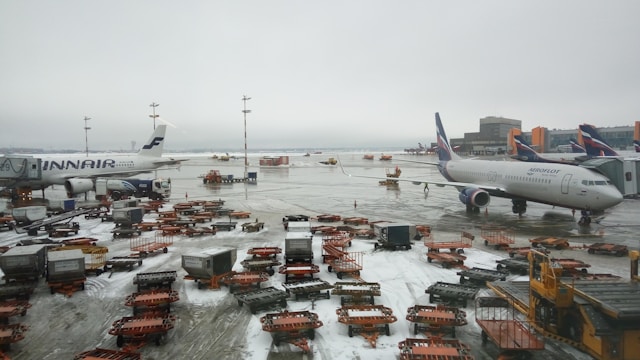-
The July 2025 air cargo volume rose 5.5% year-on-year
-
Capacity increased by 3.9%
-
Most major trade lanes reported growth, with one exception: Asia–North America, where demand was down 1% year-on-year
-
The decline was blamed on the expiry of US de minimis exemptions for small shipments
The July 2025 air cargo market, measured in cargo ton-kilometers, rose by 5.5% compared to July 2024 levels, according to the latest data from the International Air Transport Association (IATA).
Capacity, measured in available cargo ton-kilometers, increased by 3.9% for the same period.
Most major trade lanes reported growth, with one exception: Asia–North America, where demand was down 1.0% year-on-year.
A sharp decline in e-commerce was likely offset by shippers frontloading goods in advance of rising tariffs for imports to the US, according to IATA.
The decline was blamed on the expiry of the US de minimis exemptions for small shipments.
August is seen to reveal more clearly the impact of shifting US trade policies.
While much attention is rightly being focused on developments in markets connected to the US, “it is important to keep a broad perspective on the global network,” said IATA director general Willie Walsh.
“A fifth of air cargo travels on the Europe–Asia trade lane, which marked 29 months of consecutive expansion with 13.5% year-on-year growth in July,” he added.
Several factors in the operating environment should be noted:
The global goods trade rose by 3.1% year-on-year in June.
The jet fuel price in July was 9.1% lower year-on-year and has remained below 2024 levels so far this year, easing airlines’ operating costs. However, it was 4.3% higher than in June.
Global manufacturing contracted in July with the PMI falling to 49.66, the second dip below the 50-mark growth threshold since January.
New export orders remained negative at 48.2 for the fourth month, reflecting waning confidence amid US trade policy uncertainty.
Asia-Pacific airlines saw an 11.1% year-on-year growth in air cargo demand for the month in review, the strongest rise of all regions. Capacity increased by 7.3% year-on-year.
North American carriers saw a 0.7% year-on-year hike in growth for air cargo, the slowest growth of all regions. Capacity decreased by 0.6% year-on-year.
European carriers saw a 4.1% year-on-year increase in demand. Capacity increased 4.0% year-on-year.
Middle Eastern carriers saw a 2.6% year-on-year increase in demand. Capacity rose by 5.9% year-on-year.
Latin American carriers saw a 2.4% year-on-year increase in demand. Capacity increased by 3.8% year-on-year.
African airlines saw a 9.4% year-on-year increase in demand. Capacity decreased by 0.1% year-on-year.









